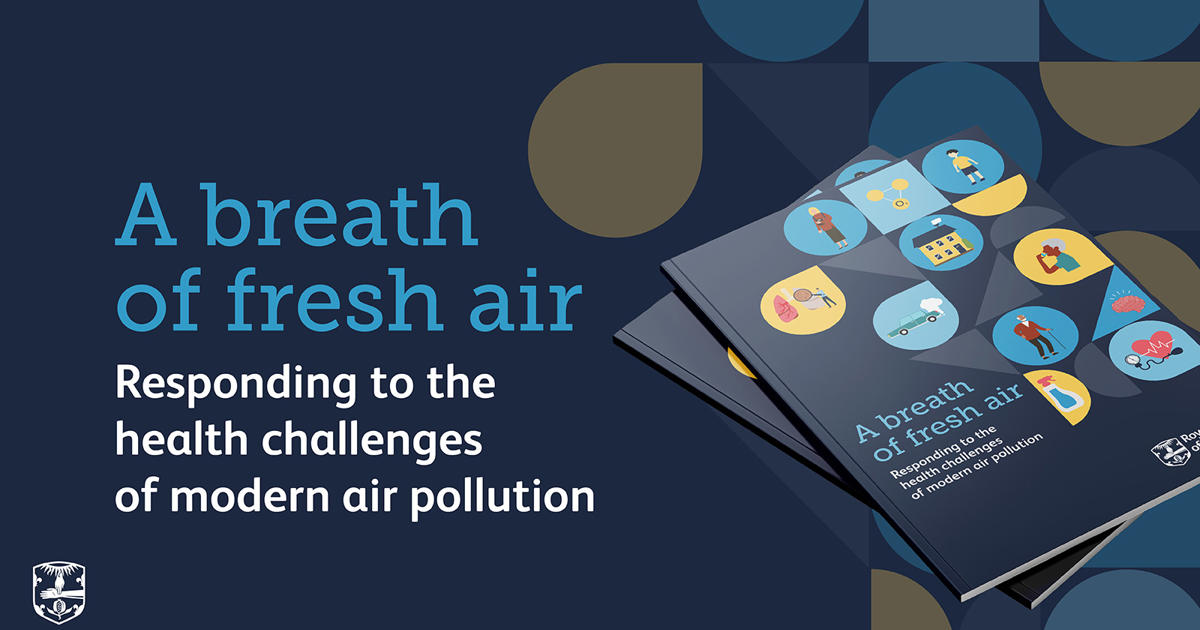The Health Crisis of Air Pollution: An Urgent Call to Action
Every year, approximately 30,000 lives are stunted by a silent killer: air pollution. In the United Kingdom, this invisible adversary is costing society over £27 billion annually, a staggering figure that includes healthcare expenses, lost productivity, and diminished quality of life. As the Royal College of Physicians (RCP) highlights in its latest report titled A Breath of Fresh Air: Responding to the Health Challenges of Modern Air Pollution, air pollution should no longer be viewed merely as an environmental concern but as a profound public health crisis.
Understanding the Toxic Burden
The RCP warns that the effects of air pollution infiltrate nearly every organ in the human body, presenting dire consequences for all demographics, especially pregnant women, the elderly, and those living in poverty. Recent studies underline that even low concentrations of toxic air can dramatically impact health; risks range from impaired fetal development to chronic diseases such as heart disease, stroke, and increasing instances of dementia.
“With urbanization on the rise and more time spent indoors, we must also address the hidden dangers of indoor air pollution,” says Dr. Gary Fuller, an associate professor at Imperial College London and a key advisor for the report. “Poor ventilation, dampness, and household chemicals are significant contributors that too often go unaddressed.” This duality of public spaces and indoor environments necessitates immediate attention.
The Economic and Health Toll
- In 2019 alone, costs associated with healthcare and productivity losses due to air pollution exceeded £27 billion.
- Projected costs could reach £50 billion when accounting for long-term effects, including dementia.
- Even with anticipated reductions in pollutant exposure under government policies, annual costs are expected to hover around £30 billion by 2040.
The RCP report emphasizes that air pollution might be linked to around 30,000 deaths in 2025, which dangerously mirrors the government’s estimations of 29,000 to 43,000 deaths in 2019. The conclusion drawn is clear: no level of air pollution is considered safe, and although progress has been made, the health impacts remain severe.
Impact on Vulnerable Communities
While air pollution is a universal hazard, its impact is disproportionately felt by the most marginalized communities—those who contribute the least to emissions yet suffer the most significant health consequences. As Dr. Mumtaz Patel, president of the RCP, asserts, “The time has come for policy-makers to recognize this issue as a justice matter, not merely an environmental one.” The convergence of affluence and health inequalities underlines why urgent reforms are imperative.
Recommendations for Immediate Action
The RCP’s report comes with a robust list of recommendations aimed directly at the UK government:
- Implement measures to reduce pollution at its source, focusing on emissions from wood burning, transport, and indoor pollutants.
- Develop pathways to meet the World Health Organization’s 2021 Global Air Quality Guidelines, ensuring regular assessments of regulatory effectiveness.
- Launch a UK-wide public health campaign on air pollution that educates citizens about its dangers and offers practical strategies for mitigating exposure.
- Create a cross-departmental indoor air quality strategy to combat issues such as damp and mould in public and private spaces.
“We need to treat clean air with the same seriousness we treat clean water or safe food,” emphasizes Dr. Patel. “Air is a basic human right, not a luxury.” This urgent need for a paradigm shift echoes through the various recommendations, underscoring that the fight against air pollution encompasses not only health but socioeconomic wellbeing.
Scientific Consensus and the Path Forward
The irrefutable evidence presented in the RCP’s report is supported by years of research that ties air pollution to a plethora of health issues. Professor Sir Stephen Holgate, a clinical expert and lead author, states, “The scientific backing is now overwhelmingly strong; air pollution is a major driver of diseases across the entire lifespan.” He continues, “To ignore this problem any longer invites unacceptable consequences, where both lives and productive years are lost.”
Dr. Suzanne Bartington, a clinical associate professor in environmental health, emphasizes that air pollution is not merely a momentary concern: its effects span a lifetime and creep into every facet of health and wellness. “Higher concentrations of pollutants often linger in socially disadvantaged areas, worsening health inequalities,” she states. “It is vital that we address these disparities in our public health strategies.”
The RCP’s positioning of air pollution as a pressing public health dilemma compels government action, not just for those affected today, but also for future generations. The urgency of the situation has become starkly evident—with no safe levels of exposure deemed acceptable, the call for reform is more than timely; it is essential for the longevity and health of the population.
As the United Kingdom stands at a crossroads—between being overwhelmed by air pollution or taking decisive action—the RCP’s latest report serves as a clarion call. The complex interplay of health, economics, and justice reveals that clean air is not merely a backdrop to our daily lives but a prerequisite for our collective well-being.
Source: www.rcp.ac.uk


